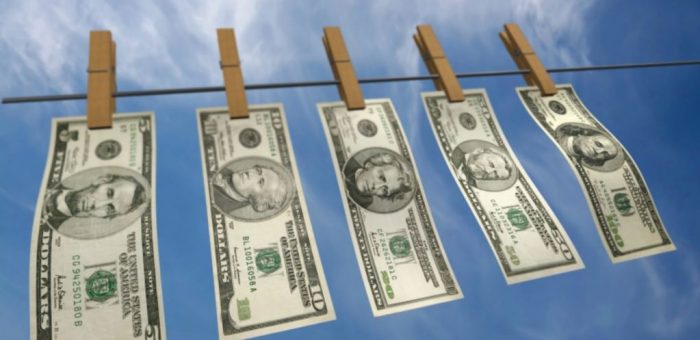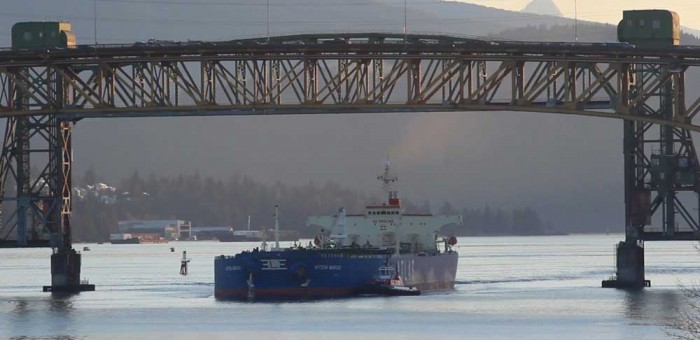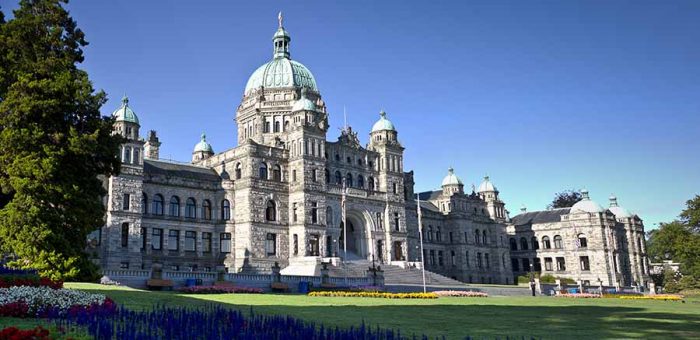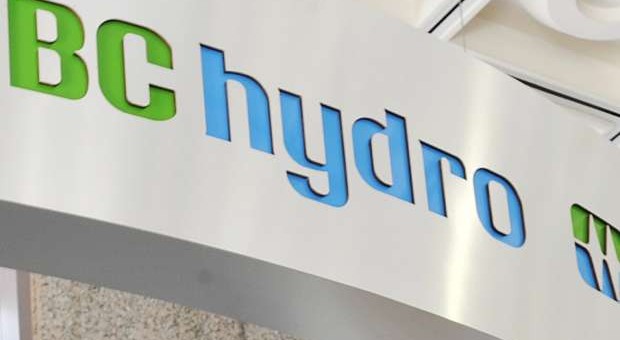Media Release
Statement on the School Strike for Climate
Today at the BC Legislature I had the distinct honour to witness more than a thousand youth support Nobel Peace Prize Nominee Greta Thunberg and the school climate strike. Below I reproduce the press release that the BC Green Party released in support of this event that I attended. As you might imagine, the incredible youth participating in this student strike are a wonderful inspiration for me and they certainly serve as hope for the future.
Media Release
B.C. Green Caucus statement on the School Strike for Climate
For immediate release
March 15, 2019
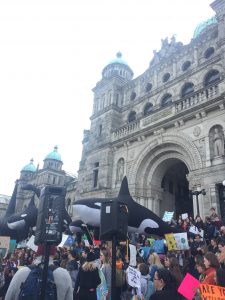 VICTORIA, B.C. – Inspired by the school strikes of Nobel Peace Prize Nominee Greta Thunberg, hundreds of thousands of children and youth around the world are striking today for climate action.
VICTORIA, B.C. – Inspired by the school strikes of Nobel Peace Prize Nominee Greta Thunberg, hundreds of thousands of children and youth around the world are striking today for climate action.
“Our children are telling us that it is time to treat this crisis as a crisis, and they are right,” said Andrew Weaver, leader of the B.C. Greens. “I am humbled and honoured to stand with the world’s children and youth as they demand political action on climate change.
“All of the science is pointing to the fact that we are fast running out of time to avoid global catastrophe, and yet around the world political leaders are failing to consider the existential threat that we face. To quote Greta Thunberg, we need to focus on what needs to be done rather than what is politically possible.”
“The decisions we make today have lasting impacts,” said Sonia Furstenau, B.C. Green MLA for Cowichan Valley. “Our young people may not be able to vote, but their voices are strong and we have a moral, ethical, and political responsibility to listen to them.
“We are incredibly proud of the CleanBC plan and how it will shape our province in the years to come. But as our children are pointing out today, we need to do much, much more. I was grateful to join today’s climate strike, these kids and young people inspire me to keep fighting for a just future.”
-30-
Media contact
Macon McGinley, Press Secretary
+1 250-882-6187 |macon.mcginley@leg.bc.ca
B.C. Green Caucus calls for public Inquiry into money laundering scandal
Today I rose during Question Period to call on the BC Government to initiate a full scale public inquiry into Money Laundering in British Columbia. The purpose of such an inquiry is to remove the investigation from partisan influence, protect the public interest and restore public trust. The B.C. Green Caucus does not ask for this lightly. However the financial impact money laundering has had — and that it continues to have — on the province is staggering: the federal Ministry of Finance estimates the problem at least $1 billion annually.
Over the past two weeks, my colleagues Adam Olsen, Sonia Furstenau and I have been using Question Period to explore what government is doing to deal with British Columbia’s money laundering scandal. The responses to our questions suggest that while the government has been doing a good job on a variety of fronts, we should bring the investigation into one, independent public inquiry.
We believe that there is enough evidence now to warrant the provincial government starting down this path, without waiting for more reports. Future reports still outstanding can feed directly into an inquiry. We further believe that the terms of reference for the inquiry must be broad enough to address money laundering, organized crime networks, the real estate market, the opioid crisis, and the links between them.
An independent public inquiry is the best course of action because inquiry commissioners can have the power to subpoena witnesses and compel testimony. Furthermore, it can run parallel to any criminal investigation as was done in Quebéc with the Charbonneau Commission.
We are joined in the call for a public inquiry by the cities of Victoria, Richmond, and Vancouver, more than 76% of British Columbians, Port Coquitlam Mayor Brad West, the BC Government Service Employees Union, and several petitions signed by thousands of British Columbians.
Below I reproduce the video and text of my question period exchange with the Attorney General. I also append a copy of our media release.
Video of Exchange
Question
A. Weaver: Please let me start by thanking members of opposition and the minister for canvassing such an important issue and having the dialogue that led to some very informative answers that we can take back to our constituency. I thank you for the questioning there.
A recent article from the Vancouver Sun pointed out that the scale of money laundering happening here in British Columbia is still unclear. A report last year from the Paris-based financial action task force indicated that $1 billion a year was laundered through a “massive” underground bank in British Columbia that served Mexican cartels, Asian gangs and Middle Eastern crime groups.
Illegal gambling money, drug money and money derived from extortion was laundered in British Columbia to supply cash to Chinese gamblers. Yet, our government continues to take a reactive approach to money laundering. There is a deficit of public trust in our province, and the people of British Columbia deserve a government that will take a more proactive approach to this issue.
My question to the Attorney General is this: will the minister introduce the public inquiry into money laundering in British Columbia?
Answer
Hon. D. Eby: I thank the member for the question and all members for the tone of the Legislature today. I think it’s great.
In terms of the member’s question about the approach that the government is taking, we were clear from the very beginning about why we have taken the approach of doing reviews into money laundering versus a public inquiry. We can move faster. We can get the information we need, and we can stop the activity that is actually taking place in British Columbia. We saw that in the casino file. We were able to stop the activity of bringing bulk cash into the casinos very quickly as a result of a review. A public inquiry takes longer to get to those kinds of results.
But that doesn’t mean that we don’t have the same questions that the member has about who knew what when, what kind of accountable should there be and the kinds of questions that can be answered through a public inquiry. What it does mean is that we need to take action to stop the activity as quickly as we can. The member knows that Dr. German is currently working on questions related to horse racing, luxury cars and real estate. I can tell the member that Dr. German is already uncovering some very disturbing information that’s causing government to take action and enabling us to take quick action. I’m very grateful for Dr. German doing that kind of work for us. But that does not exclude the possibility of a public inquiry.
I thank the member for making his party’s position very clear on this issue and all British Columbians, frankly, who have written to me about this issue to express their interest in a public inquiry as well.
Supplementary Question
A. Weaver: I thank the minister for the answer to the previous question.
While I do appreciate the response I received, the question I’m left with is: how many reports and news stories do we need to be written to convince this government that more resources are required to solve the problem? This government needs to develop solutions, not wait for them to arrive on their doorstep and waiting for other reports to articulate them.
Last week the Attorney General made reference to the fact that one of the top five transnational criminal organizations in the world was getting tax credits from Advantage B.C. A criminal organization getting tax credits in British Columbia to launder money is absolutely unbelievable. It’s an unbelievable allegation. It’s clear that government doesn’t yet understand the scope of this issue and that one or two reports is not enough.
In order to get to the root of this problem, we need an independent approach that can address the broad scope of money laundering in our province.
Previously, the Premier stated that he prefers prosecution over public inquiry. However, transparency watchdogs and lawyers who are experts on transnational crime have called for a public inquiry. That’s the only way to effectively deal with this problem. A public inquiry along the lines of what occurred in the Charbonneau Commission can run in parallel to criminal investigations that may or may not be ongoing.
Again, my question is to the Attorney General: when will the minister institute a public inquiry on the issue of money laundering in our province?
Answer
Hon. D. Eby: A couple of pieces about the member’s question. One is in relation to prosecutions. The member knows that the federal prosecution fell apart. It was expected to go to trial. It didn’t. It was ultimately stayed just before it was going to go to trial. Those materials are being reviewed by provincial prosecutors right now to determine whether or not our independent prosecution service will be bringing charges in relation to those materials. That’s ongoing.
A public inquiry, itself, will not result in criminal charges. It provides accountability. It provides the public with transparency into what took place — who knew what and when. It is a political accountability tool, but it is not a prosecution tool. So just to draw that important distinction. Now, that’s not to say it doesn’t have an important place in the tools of accountability of government. It’s just to say that it has that limitation.
The work that we’re doing right now is not reactive. We’re out there. We have experts on this issue. The Minister of Finance — I mean, she cancelled Advantage B.C., right? That is the program that gave the tax credits to Pacman. I mean, we are taking the steps that are needed. We’re getting the experts to provide advice. We’re actually taking steps — the Ministry of Finance on the beneficial ownership registry, so we actually know who owns property, an important tool for police and for tax authorities. We have Peter German out there, working on important issues so that we can take action in relation to those other areas that I told the member about. We’re taking a lot of action on this.
As I said to the member and as I would say to all British Columbians, that does not mean — and the Premier has been very clear — that we have ruled out a public inquiry on this issue. It just means that we’re taking these steps and these necessary steps first.
Media Release
B.C. Green Caucus Calls for Public Inquiry into Money Laundering Scandal
For immediate release
February 26, 2019
VICTORIA, B.C. –The B.C. Green Caucus calls on its fellow MLAs to stand united in calling for an independent public inquiry into the issue of money laundering, which has strong ties to the province’s housing affordability and opioid crises.
“We are calling for an immediate public inquiry into money laundering in BC so to remove the investigation from partisan influence, protect the public interest and restore public trust,” said MLA Andrew Weaver, leader of the B.C. Green party. “The B.C. Green Caucus does not ask for this lightly. However the financial impact money laundering has had- and that it continues to have- on the province is staggering: the federal Ministry of Finance estimates the problem at $1 billion annually.”
The province made international headlines last year when a report by the Paris-based Financial Action Task Force, a body of G7 member countries fighting money laundering, terrorist financing and threats to the international financial system, was leaked to the press. The report highlighted B.C. money laundering activities, of which the province admitted it was not fully aware.
“An independent public inquiry is appropriate as it can have a broad scope, functioning outside of partisan influences or criminal jurisdictions and extensive enough to include all senior public officials and elected members of the Legislature. Public inquiry investigations can involve interviews and oral testimony, and commissioners can have the power to subpoena witnesses. These investigations get to the heart of the complexity of what exactly happened and how it was allowed to happen.
“Although inquiries are not courts, they often exist alongside criminal investigations-such as the Charbonneau Commission in 2011- supplementing those criminal charges with real, actionable recommendations to identify, reduce and prevent such events from happening again. This is something purely punitive criminal charges do not address.
“The BC Green Caucus is not alone in its call for an independent public inquiry into the issue of money laundering in BC. We are joined by cities of Victoria, Richmond and Vancouver, and more than 76 percent of British Columbians polled last year support an inquiry. The chorus grows daily.
“An inquiry of this nature will take time, but so too did this money laundering scheme with evidence going back at least a decade. And the financial repercussions of a skyrocketing housing market and the devastating impacts the of opioid epidemic on the health and wellbeing of British Columbians will possibly span many years into the future. We owe it to ourselves and our children to investigate the links between money laundering, real estate, drug trafficking, and organized crime.”
-30-
Media contact
Macon McGinley, Press Secretary
250-882-6187, macon.mcginley@leg.bc.ca
Investing in fossil fuel infrastructure misguided, spells end of Southern Resident Killer Whales
Today the National Energy Board released its Reconsideration report for Trans Mountain Expansion Project.The report concludes that:
“report concludes that Project-related marine shipping is likely to cause significant adverse environmental effects on the Southern resident killer whale and on Indigenous cultural use associated with the Southern resident killer whale. The NEB also found that greenhouse gas emissions from Project-related marine vessels would likely be significant. While a credible worst-case spill from the Project or a Project-related marine vessel is not likely, if it were to occur the environmental effects would be significant. While these effects weighed heavily in the NEB’s consideration of Project-related marine shipping, the NEB recommends that the Government of Canada find that they can be justified in the circumstances, in light of the considerable benefits of the Project and measures to minimize the effects.“
As noted in the press release reproduced below, this process was about ‘getting to yes’ from the very beginning – it was set up to fail to protect the public interest. The federal approval of this project was always political. The BC Green Caucus continues to strongly believe that this project is not in the interest of British Columbians.
Media Release
Investing in fossil fuel infrastructure misguided, spells end of Southern Resident Killer Whales
For immediate release
February 22, 2019
VICTORIA, B.C. – Andrew Weaver, leader of the B.C. Green party, expressed profound disappointment at the National Energy Board’s report released today, which recommended the Federal Government approve the Transmountain Expansion Project.
“This process was about ‘getting to yes’ from the very beginning – it was set up to fail to protect the public interest. The federal approval of this project was always political. The BC Green caucus has been clear that this project is not in the interests of British Columbians.
“B.C. needs to be in control of our own environmental review process, to make sure it is objective and evidence-based. We cannot rely on the Federal government. The province should terminate the equivalency agreement with the Federal government, and conduct our own environmental assessment for this project. We must do all we can to ensure that our environment is protected from the costs of this project.
“Investing in 20th century technologies that are known to contribute to our 21st century challenges is irresponsible and short-sighted. The negative impacts of this project on BC are unacceptable. BC would shoulder massive environmental costs, while gaining little economic benefit. A spill would be devastating to our environment, our coastal economies and our tourism industry.
“BC’s economic future lies in the innovative, creative industries that are leading global economic growth, not the sunset industries of yesterday. The world is transitioning to the low-carbon economy, with or without us. Innovator super-powers like Germany and China are investing heavily in the economic opportunities that arise from this transition.
“The federal government must prioritize growth sectors instead of wasting billions investing in fossil fuel companies that are quickly becoming obsolete.
“The NEB found that there would be significant impacts on BC’s already endangered Southern Resident Killer Whales. Is the federal government ready to justify to Canadians why it is willing to herald the death knell of this iconic species?
The report also found that there would be “significant” greenhouse gas emissions from the expanded marine vessel traffic alone.
“It is unbelievably misguided to build more fossil fuel infrastructure at this critical juncture in our history. We owe it to our children and grandchildren to begin the immediate transition to the low-carbon economy.”
-30-
Media contact
Macon McGinley, Press Secretary
250-882-6187 |macon.mcginley@leg.bc.ca
Initial response to BC Budget 2019
Today was Budget Day in the BC Legislature. This is the second full budget announced by the BC NDP minority government. The government’s 2019 budget provides clear evidence that the B.C. Greens’ participation in this landmark minority government has been a success in advancing its values and policy priorities.
When I rise tomorrow to speak to the budget, I will provide a more extensive analysis. Below is the media statement we released outlining our initial reaction.
Media Statement
B.C. Green influence evident in 2019 budget priorities
For immediate release
February 19, 2019
VICTORIA, B.C. – The government’s 2019 budget provides clear evidence that the B.C. Greens’ participation in this landmark minority government has been a success in advancing its values and policy priorities.
“We are pleased the B.C. Green Caucus’ impact on this budget is so evident,” said MLA Andrew Weaver. “By funding core B.C. Green initiatives, including CleanBC, professional reliance reform, and increasing affordability for students, government demonstrates the value of our voice in a minority government.
“I have been pushing government to prioritize the wellbeing of British Columbians, their economy and their environment since I was elected almost six years ago. CleanBC is not just an investment for today, but for our future as well. The investment of almost $1 billion over the fiscal plan goes a long way to putting us on track to meet our targets.”
Advancing the policies in the Confidence and Supply Agreement has been a unique challenge, but the 2019 budget takes meaningful steps forward on numerous caucus priorities. The B.C. Green Caucus values being able to work collaboratively with government.
Other B.C. Green priorities that have been funded in this budget: support for family caregivers, Pharmacare, education, childcare, and investments in youth mental health.
The announcement of the B.C. Child Opportunity Benefit is also a positive step forward, providing support for the health and wellbeing of B.C. families.
“The B.C. Child Opportunity Benefit will positively impact B.C. families and aligns with our values of intergenerational equity and proactively promotes the health and wellbeing before they find themselves left behind.”
There are also welcome advances in the relationship between government and Indigenous nations with the agreement on revenue sharing advanced in this budget.
However, the B.C. Green caucus would have invested significantly more in environmental stewardship to ensure future generations have the same opportunities and security that we do.
“Funding for habitat and species protections is underwhelming. Our province’s wildlife is facing increasing threats, and to ignore the plight of endangered species like steelhead is more than shortsighted; it is dangerous to the economy, environment and our province’s cultural identify.
“Preparing for the future will continue to be a challenge. We know that climate change threatens every aspect of life in our province. Government must recognize this threat and allocate funding to address the unavoidable increase in natural disasters. From wildfires to flooding, we must aggressively fund our emergency response network and plan on emergency funding needs in the year to come.”
-30-
Media contact
Macon McGinley, Press Secretary
250-882-6187 |macon.mcginley@leg.bc.ca
Responding to the release of BC Hydro Phase 1 review
The BC NDP today released Phase 1 of its BC Hydro review. While the BC Green Caucus supports the reestablishment of the BC Utilities Commission’s oversight role for BC Hydro, we are profoundly troubled with the cancellation of the Standing Offer program. This will have the effect of killing the clean energy (and their supply chain) sector in British Columbia right at the time when we are launching the CleanBC economic plan. This decision will mean that BC will almost certainly incur significant liability as project proponents who invested heavily to be part of the Standing Offer program, seek damages. On top of this, the cancellation of the program is a betrayal of indigenous communities across British Columbia who had positioned themselves to take advantage of the economic opportunities associated with clean energy production.
Today’s announcement reinforces yet another predictable outcome of the BC NDP’s fiscally-reckless decision to proceed with the construction of the Site C dam. Below I reproduce the media statement our caucus released in response to the BC NDP’s announcement.
Media Release
B.C. Green Caucus responds to release of BC Hydro Phase 1 review
For immediate release
February 14, 2019
VICTORIA, B.C. – The B.C. Green Caucus responded today to the government’s phase 1 BC Hydro Review.
“This government deserves significant credit for the steps they have announced today to address the politicization of BC Hydro by the previous government,” said Andrew Weaver, leader of the B.C. Green Party. “Re-establishing the BC Utilities Commission’s oversight role will help ensure future governments base their policy decisions in evidence, rather than what is politically expedient at the time.”
“However, the number one issue that remains unaddressed with today’s announcement is how BC Hydro is planning for the future. The economic strategy CleanBC announced late last year relies heavily on the electrification of buildings, transportation and industry. We need to be having a serious conversation about what changes need to happen to BC Hydro to accomplish our goals. The future is no longer big dams; it’s time our utility evolved.”
The BC Green Caucus also express concern about the way in which the standing offer program was cancelled, especially with regards to First Nations communities. It is not yet known how much financial risk the government is exposed to with the programs cancellation.
“You have investors who were told by government to invest their time and money into a program, and then you’ve pulled the rug out from under them,” said Weaver.
First Nations in particular were told that the standing offer program was an opportunity for economic development and energy self reliance, only to have the program end without significant consultation in advance.
“This pattern of government engaging First Nations after a decision has been made must come to an end,” said Adam Olsen, MLA for Saanich North and the Islands. “We do not build any trust when we ask First Nations to spend their money and time on partnerships with government, only to abruptly change course.”
-30-
Media contact
Macon McGinley, Press Secretary
+1 250-882-6187 |macon.mcginley@leg.bc.ca


